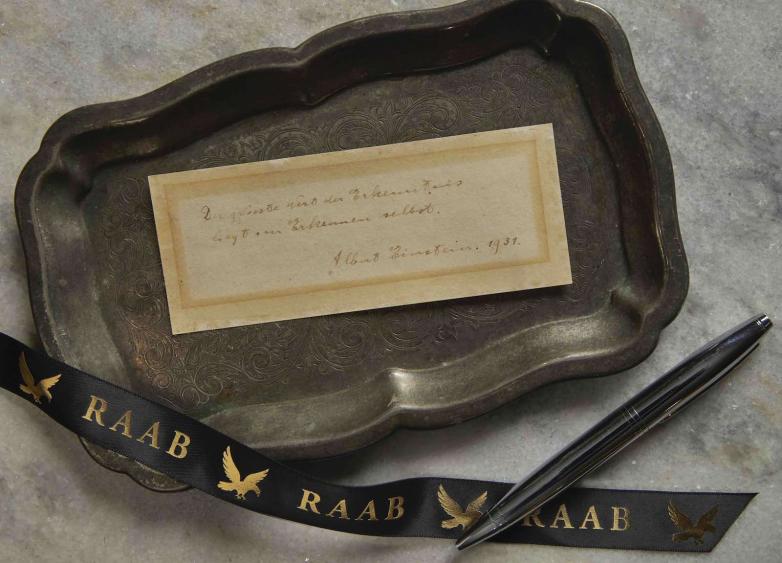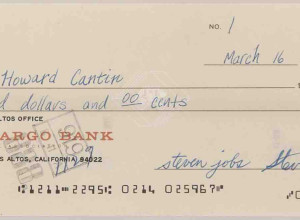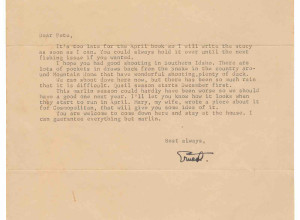Newly Discovered Handwritten Quotation of Albert Einstein on the Purpose of Learning

The newly discovered Einstein quotation
The Raab Collection has discovered and is offering for sale a previously unknown and defining statement in the hand of Albert Einstein in which the world-renowned scientist reveals the real reason to pursue learning and knowledge is for its own sake: “The greatest value of knowledge lies in knowledge itself.”
This maxim illuminates the guiding principle of one of the greatest minds of the 20th century, that the purpose of learning and the acquisition of knowledge are significant in and of themselves, regardless of what they produce. This original historical document was not known to exist by Einstein scholars. Written in German and dated 1931, the signed quotation is valued at $65,000.
The newly discovered quotation dates to 1931. He traveled that year to Oxford, England, where he gave a series of lectures to students at the university, and to California, where he held a residency at CalTech in Pasadena (and also famously visited Hollywood, attending a movie premiere as Charlie Chaplin’s guest of honor and meeting with a slew of celebrities).
This quotation was unknown until now. However, the sentiment expressed in the quotation was echoed in Einstein’s autobiography, The World as I See It, published three years later. In his autobiography, he would elaborate on this earlier quote, stating: “The pursuit of knowledge for its own sake, an almost fanatical love of justice and the desire for personal independence – these are the features of the Jewish tradition which make me thank my stars that I belong to it.”
Albert Einstein landed his first job out of university as a patent clerk, despite his aptitude for music, math, and science. However, this position proved to be an incubator for the budding physicist’s creative mind. In 1905, he published four groundbreaking scientific papers; the last put forth his famous equation, E = mc2. In 1913, he was made director of the Kaiser Wilhelm Institute for Physics at the University of Berlin. In 1915, he published his General Theory of Relativity. By the age of 42, he had won a Nobel Prize.
The rise of the Nazi party in Germany forced Einstein to leave his homeland and come to the United States to continue his important work. His later years were devoted to research on Unified Field Theory, a quest he never abandoned.
“This new discovery gives us powerful insight into the mind and motivation of one of our great intellects,” said Nathan Raab, President of The Raab Collection. “It helps us better understand him and perhaps also ourselves.”















